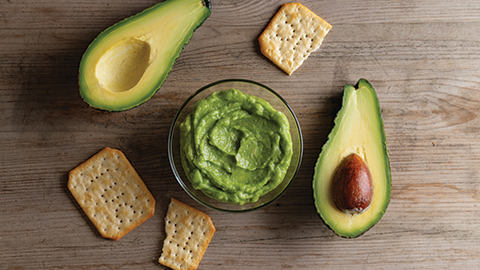Author: Coach Sumo | Founder & CEO of KnowYourMealsBlog.com
I started Know Your Meals to share my recipes and to educate others about what I’ve learned about food during my time as a successful food entrepreneur. I believe in providing high-quality and informative content. In this article, I will explore the health benefits of avocados and explain why they should be a part of your daily diet.
Let’s start right away with 10 ways to incorporate avocados into your daily diet…
- Avocado Toast – Toast a slice of whole-grain bread, mash half of an avocado on top of it, and sprinkle with your favorite seasonings.
- Guacamole – Make a delicious and healthy dip by blending together avocado, onion, tomato, lime juice, and seasonings.
- Smoothies – Add a creamy texture and a boost of healthy fats to your smoothies by blending together half of an avocado, banana, and your favorite type of milk.
- Salads – Add sliced avocados to any type of salad, from a classic Caesar salad to a quinoa and vegetable salad.
- Sushi – Make a California roll by wrapping avocado, crab meat, and cucumber in seaweed and rice.
- Baked Goods – Substitute avocado for butter or oil in baked goods like muffins or brownies.
- Omelets – Add sliced or mashed avocados to your omelets for a delicious and nutritious breakfast.
- Tacos – Use avocado as a topping for tacos, in addition to or in place of sour cream.
- Sandwiches – Add slices of avocado to your sandwiches for an extra boost of nutrition.
- Soups – Add diced avocado to your favorite soup for a creamy and healthy twist.
Nutrition Facts for 100 Gram Serving
As you can see in my above list, avocados are a versatile fruit that can be enjoyed in many different ways. But they are also incredibly nutritious. In fact, avocados are one of the healthiest fruits you can eat, packed with essential vitamins, minerals, and healthy fats that your body needs.
As we take a look at the nutritional information I provide on my website, keep in mind that as a food entrepreneur I am used to digging deep into the science – so I likely go a bit further than the typical article or blog post.
The following nutritional breakdown is for a 100 gram serving of avocado…
Calories: 160
Macronutrients:
- Total Fat: 15 g
- Saturated Fat: 2.1 g
- Polyunsaturated Fat: 1.8 g
- Monounsaturated Fat: 10 g
- Cholesterol: 0 mg
- Sodium: 7 mg
- Total Carbohydrate: 9 g
- Dietary Fiber: 7 g
- Sugars: 0.7 g
- Protein: 2 g
Vitamins:
- Vitamin A: 2% of the RDI (Recommended Dietary Intake)
- Vitamin C: 16% of the RDI
- Vitamin E: 10% of the RDI
- Vitamin K: 26% of the RDI
- Vitamin B6: 13% of the RDI
- Folate: 20% of the RDI
Minerals:
- Potassium: 485 mg (13% of the RDI)
- Magnesium: 29 mg (7% of the RDI)
- Iron: 0.6 mg (3% of the RDI)
- Calcium: 12 mg (1% of the RDI)
Here is Brief Summary of the 11 Health Benefits of Avocados
As you can see, avocados are a rich source of heart-healthy monounsaturated fats, which help to (1.) lower cholesterol levels in the body. They are also high in fiber, which helps to (2.) regulate digestion and keeps you feeling fuller for longer periods of time. The fiber in avocados is also beneficial for maintaining (3.) healthy blood sugar levels.
Additionally, avocados are a great source of potassium, a mineral that helps to (4.) regulate blood pressure and (5.) reduce the risk of heart disease. They are also rich in vitamin K, which is essential for (6.) healthy bones and (7.) blood clotting.
Avocados contain antioxidants such as lutein, zeaxanthin, and vitamin E, which help to (8.) protect the body against damage from free radicals. These antioxidants have been linked to a (9.) reduced risk of cancer, as well as (10.) improved eye health.
Furthermore, avocados are also rich in folate, a B-vitamin that is important for (11.) healthy fetal development during pregnancy.

